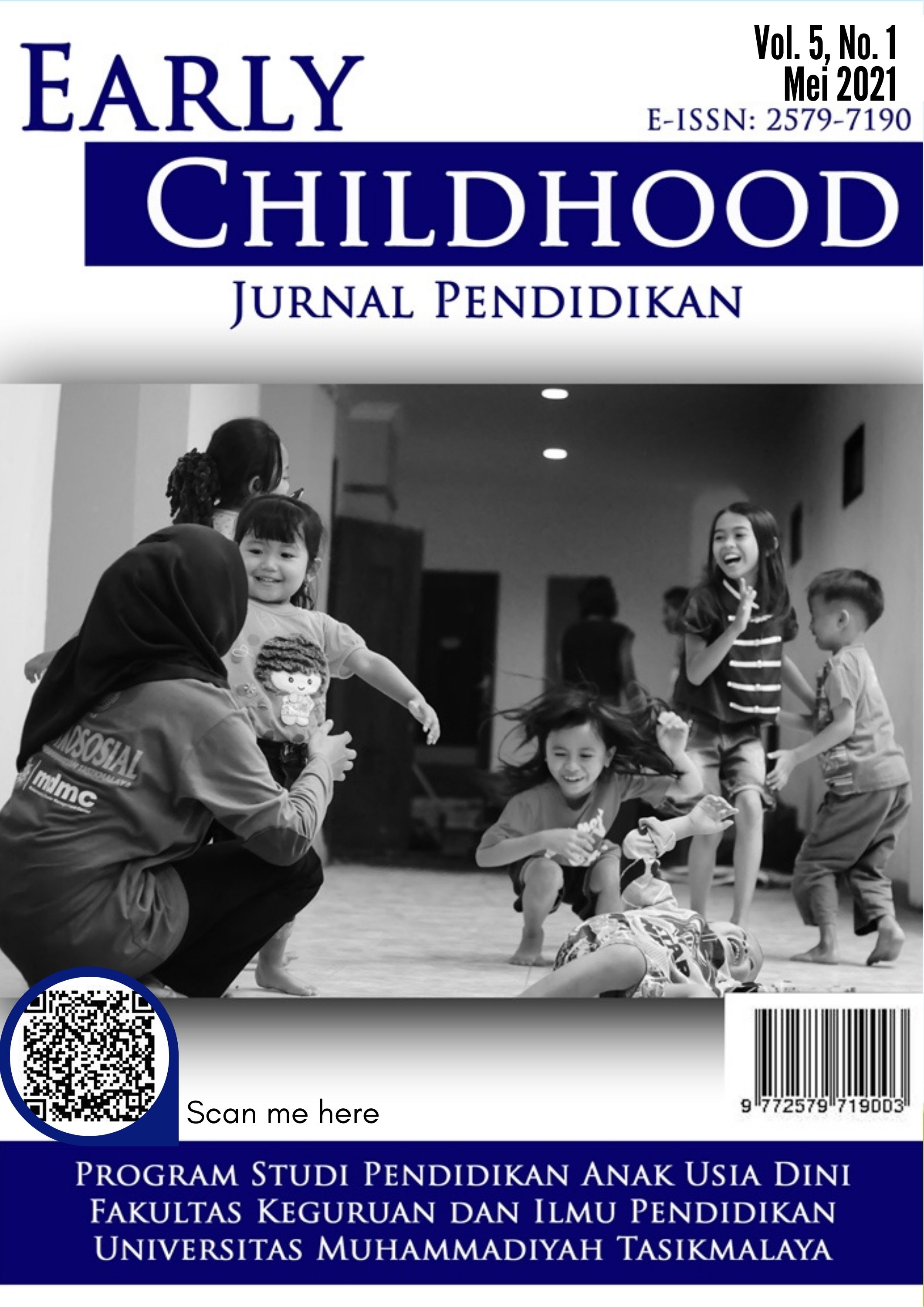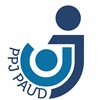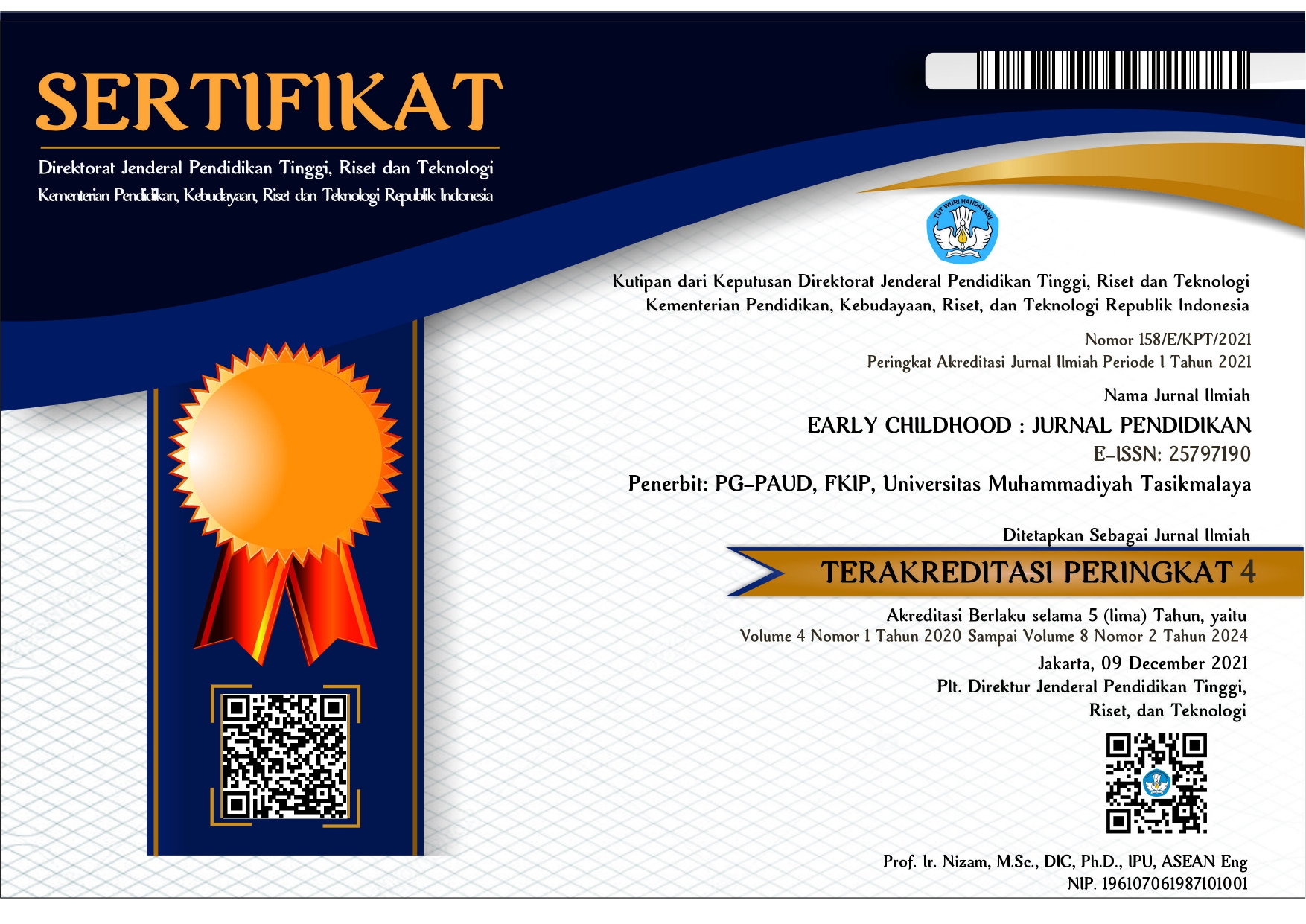PENERAPAN PERILAKU HIDUP BERSIH DAN SEHAT DI MASA PANDEMI COVID-19
DOI:
https://doi.org/10.35568/earlychildhood.v5i1.1193Abstract
Clean and Healthy Living Behaviors are a set of behaviors that are practiced on the basis of awareness as an effort to make them healthy and active in helping the health of the environment around them (Drajatun, et al, 2020). PHBS is carried out to prevent transmission of the Covid-19 virus. The purpose of this research is to describe how it is applied. PHBS in early childhood as an early prevention effort from the COVID 19 virus. The method used is a descriptive qualitative approach by describing the existing data. Data collection techniques used interviews, observation and documentation to the parents of students at the Integrated PAUD Post (PPT) Tanjung IX Kenjeran Surabaya. Furthermore, it is processed through data triangulation. The results of this study can outline that of the 10 PHBS indicators that can be used in making observations about the extent to which PHBS is implemented at home during the Covid-19 pandemic. The 10 indicators are as follows: 1. Using clean water, 2. Using healthy latrines, 3. Washing hands with soap 4. Disposing of trash in its place, 5. Weighing babies and toddlers every month, 6. Eating healthy food, 7. Immunization, 8. Eradicating mosquito larvae, 9. Doing regular exercise, 10. Do not smoke in the house. From the 10 indicators above, it is known that almost 80% of parents and children have carried out good hygiene and healthy living habits, only on the indicators of eating healthy food, doing regular exercise and not smoking in the house, there are still many who have not or need to be habituated to live clean and health is increasingly becoming a habit. In conclusion, parents and children at the Integrated PAUD Post (PPT) Tanjung IX Kenjeran Surabaya have carried out a clean and healthy living habit but need repeated habituation as an effort to prevent the Covid-19 virus.
Downloads

Downloads
Published
Issue
Section
License
Copyright Notice
Early Childhood Journal is an Open Access Journal. The authors who publish the manuscript in this journal agree to the following terms:
This work is licensed under a Creative Commons Attribution-NonCommercial-ShareAlike 4.0 International License.
Privacy Statement

The names and email addresses entered in this journal site will be used exclusively for the stated purposes of this journal and will not be made available for any other purpose or to any other party. Early Childhood allows the author(s) to hold the copyright and to retain publishing rights without restrictions.




